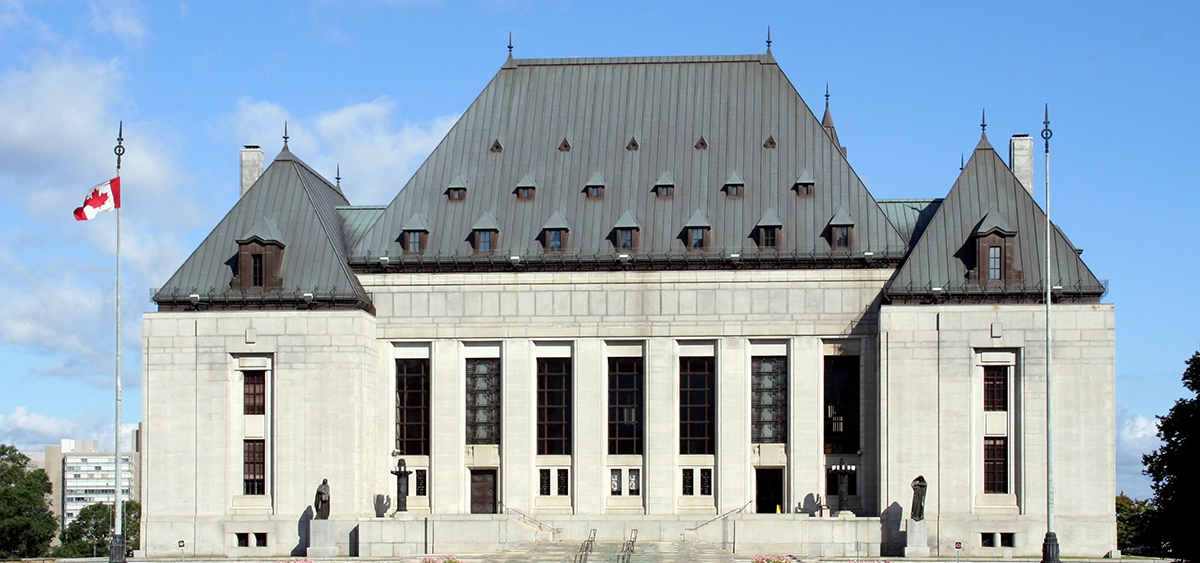After the Quebec Court of Appeal, the last court that can address a case is the Supreme Court of Canada (SCC). The SCC sits in Ottawa, but it is possible to argue before the Court via videoconference from anywhere in Canada. The Court has nine judges, and three of them must come from Quebec.

The SCC handles files that are “appeals” or “referrals”:
- The SCC hears cases on appeal from the highest court in the province or territory where the original matter occurred. In many cases, a person who wants to bring his file before the SCC must first get permission to do so. Three judges of the SCC decide if the case should be heard by the Court.
- The Government of Canada can directly “refer” questions to the SCC. The Court’s conclusions and directives will allow the government to avoid making mistakes.
Each case is presented to a panel of at least five judges. In fact, they are often seven to hear a case, and even nine if a matter is especially important. Since all of the testimony, evidence, and previous court decisions are in the file, a hearing at the SCC is often limited to a statement by each of the lawyers.
The final decision will be that of the majority of the justices, but all of the judges that heard the matter can explain their individual reasoning.
SCC judgments are read and applied to similar cases throughout Canada. For this reason, provinces, associations, and even individuals are often authorized to participate in hearings. Imagine, for example, that the Court is asked to invalidate a Manitoba law that forbids trout fishing. The SCC decision could prevent all of the other provinces from adopting a similar law. Under those circumstances, other provinces or an association for sport fishing may want to present their points of view to the Court.





